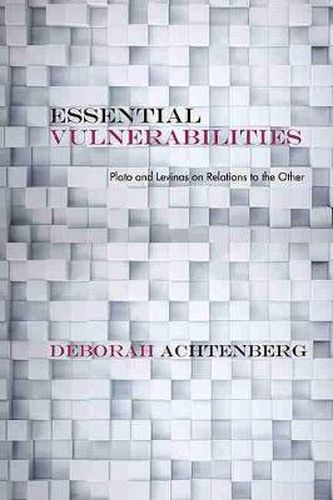Readings Newsletter
Become a Readings Member to make your shopping experience even easier.
Sign in or sign up for free!
You’re not far away from qualifying for FREE standard shipping within Australia
You’ve qualified for FREE standard shipping within Australia
The cart is loading…






In Essential Vulnerabilities, Deborah Achtenberg contests Emmanuel Levinas’s idea that Plato is a philosopher of freedom for whom thought is a return to the self. Instead, Plato, like Levinas, is a philosopher of the other. Nonetheless, Achtenberg argues, Plato and Levinas are different. Though they share the view that human beings are essentially vulnerable and essentially in relation to others, they conceive human vulnerability and responsiveness differently.
For Plato, when we see beautiful others, we are overwhelmed by the beauty of what is, by the vision of eternal form. For Levinas, we are disrupted by the newness, foreignness, or singularity of the other. The other, for him, is new or foreign, not eternal. The other is unknowable singularity.
By showing these similarities and differences, Achtenberg resituates Plato in relation to Levinas and opens up two contrasting ways that self is essentially in relation to others.
$9.00 standard shipping within Australia
FREE standard shipping within Australia for orders over $100.00
Express & International shipping calculated at checkout
In Essential Vulnerabilities, Deborah Achtenberg contests Emmanuel Levinas’s idea that Plato is a philosopher of freedom for whom thought is a return to the self. Instead, Plato, like Levinas, is a philosopher of the other. Nonetheless, Achtenberg argues, Plato and Levinas are different. Though they share the view that human beings are essentially vulnerable and essentially in relation to others, they conceive human vulnerability and responsiveness differently.
For Plato, when we see beautiful others, we are overwhelmed by the beauty of what is, by the vision of eternal form. For Levinas, we are disrupted by the newness, foreignness, or singularity of the other. The other, for him, is new or foreign, not eternal. The other is unknowable singularity.
By showing these similarities and differences, Achtenberg resituates Plato in relation to Levinas and opens up two contrasting ways that self is essentially in relation to others.